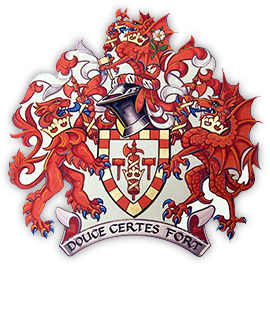I am concerned about fraud
Our members – who are authorised High Court Enforcement Officers (HCEO), or Enforcement Agents (EA) acting on their behalf – may legitimately contact you if you owe money as a debtor. If they do so, they will be able to clearly identify themselves as genuine.
The HCEOA does not enforce judgments and as an organisation we will never ask you for payment or personal details. If someone contacts you claiming to be from the HCEOA and asking for payment this is criminal activity.
If you think someone has contacted you pretending to be from the HCEOA or falsely claiming to be an HCEO or an Enforcement Agent you should:
- not pay until you are satisfied they are genuine
- report this to your local Police Station, and the National Fraud and Cyber Crime Reporting Centre (Action Fraud) on their website, or by calling 0300 123 2040.
To help us remain vigilant and aware of fraud in our industry, you can also report fraud to HCEOA using the form at the bottom of this page. However, as the Association representing High Court Enforcement Officers, we are unfortunately unable to take direct action against criminals committing enforcement fraud. Reporting instances of enforcement fraud to the police or Action Fraud is the best way to help stop these criminals.
Submitting an enforcement fraud report helps to highlight the scale of criminal activity and approaches to scams. This allows the police and Government to challenge criminals and by reporting to Action Fraud you are playing a key role in preventing crime.
What is enforcement fraud?
Enforcement fraud is when you are contacted by a criminal pretending to be a County Court bailiff, High Court Enforcement Officer or Enforcement Agent.
You could be contacted by a phone call, a text, an email or through the post. The criminal contacting you may ask for payment regarding a fine you are unfamiliar with and threaten to take further action, such as removing goods from your property, if you don’t respond. They may also mention your name and address to make their correspondence seem genuine.
Unfortunately, enforcement fraud is becoming more common. You can find more information about it on the Government’s website.
What to expect from a genuine High Court Enforcement Officer or Enforcement Agent
Understanding what to expect from a genuine High Court Enforcement Officer or Enforcement Agent is the first step in protecting yourself from enforcement fraud.
Instructing a High Court Enforcement Officer is usually a last resort for someone collecting a genuine debt. If you have been visited by a High Court Enforcement Officer or an Enforcement Agent you should already have received numerous notices and communications from the person or business that you owe money to.
Any Enforcement Agent contacting you must ensure that they make it clear who they are, why they are calling and the precise details of the writ which they are seeking to enforce. They should clearly be able to quote the court action number, the date of judgment and the court that sealed the writ.
How do I spot enforcement fraud?
If you have any doubts that the person or organisation contacting you isn’t genuine do not make any payments and ask for contact details of the business they represent.
Scams run by criminal organisations are becoming more sophisticated but there are some things you can check if you suspect fraud:
- If the person is claiming to be a HCEO you can check whether they are listed on our members list, as well as checking which enforcement firm they work for. Double check the business exists and contact them using the details listed here to ensure the person is genuine.
- If the person is claiming to be an Enforcement Agent, you can ask them for full details of their Enforcement Agent certificate. You can use the Ministry of Justice’s Register of Enforcement Agents to confirm these details.
- Consider whether their web address or email address look genuine. Many scam sites do not end in ‘.com’, ‘.co.uk’ or ‘.org’
- Check their office address, a simple Google search combining the company name and office address on any correspondence you receive should bring up listings for a registered office or Companies House details. If you can’t find this, it could be a fraud.
I have doubts that the person or organisation contacting me isn’t genuine, what should I do?
If you think someone has contacted you pretending to be a HCEO or an Enforcement Agent you should report this to your local Police Station, and the National Fraud and Cyber Crime Reporting Centre (Action Fraud) on their website, or by calling 0300 123 2040.
To help us remain vigilant and aware of fraud in our industry, you can also report fraud to HCEOA. However, as the Association representing High Court Enforcement Officers, we are unable to take direct action against criminals committing enforcement fraud. Reporting instances of enforcement fraud to the police or Action Fraud is the best way to help stop these criminals.
For more information
You can find helpful information on identifying and preventing fraud at:






